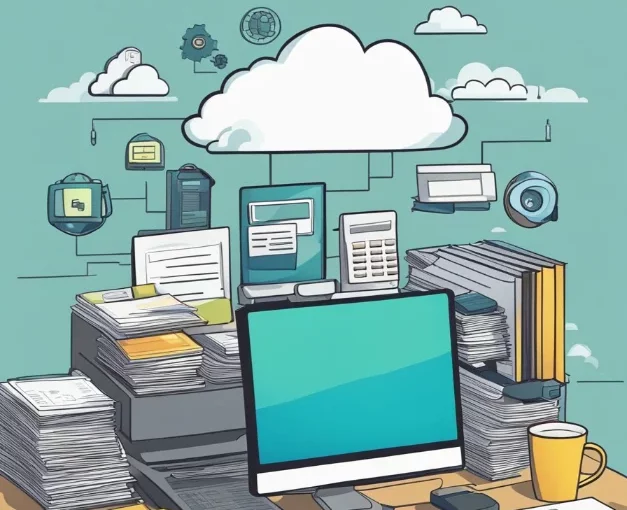The deadline for paying taxes in Canada is April 30th. Understanding the deadlines for paying income tax in Canada is crucial to ensure timely payments and avoid potential penalties. As a taxpayer, you are responsible for being aware of these important dates set by the Canada Revenue Agency (CRA), which governs tax filiation and collection. The tax season can be a busy time for Canadians, but keeping these deadlines in mind helps in planning ahead and making sure that your taxes are settled on time.
The primary deadline to note for paying your individual income tax is April 30. If you owe taxes, this is the last date by which payment must be made to the CRA to avoid interest and penalties. For those who are self-employed, or have a spouse or common-law partner who is self-employed, the deadline for filing is the same, but the payment deadline is extended to June 15. This specific extension is meant to accommodate the unique financial situations of individuals with self-employed income.
Electronic filing begins earlier in the year and if completed by mid-March, you could receive benefits such as the Canada Carbon Rebate payment, which is issued approximately a month later. Being proactive and filing your tax return early is beneficial, allowing you to receive any refunds expeditiously and ensure all government benefits continue without interruption. Remember, even if you are unable to pay the full amount of taxes owed right away, you should still file your return on time to minimize penalties.
Income Tax Deadlines and Requirements
Understanding the specific deadlines for filing and paying your income tax in Canada is crucial to avoid interest and penalties. This section lays out the important dates you need to mark on your calendar, special situations that may affect these deadlines, and the potential consequences if these dates are missed.
Key Dates for Tax Filing and Payment
For most individuals, the key date to remember for filing your income tax and benefit return is April 30. If you or your spouse are self-employed, you have until June 15 to file. However, regardless of your self-employed status, any balance owed is still due by April 30. If you expect a refund, filing earlier can lead to receiving your direct deposit sooner. For the tax-filing season related to 2023 taxes, the following dates are important:
- April 30: Deadline to file your income tax return and pay any tax owed
- June 15: Filing deadline for self-employed individuals and their spouses
- March 1: Deadline for contributing to your RRSP for the 2023 tax year
Special Circumstances Affecting Deadlines
If the usual deadline falls on a weekend or a public holiday, the Canada Revenue Agency (CRA) will consider your tax return as filed on time if it’s received or postmarked the next business day. There are also provisions for those who are late due to circumstances beyond their control, where the CRA may waive penalties and interest.
Consequences of Missing the Deadline
Failing to meet the income tax filing deadline or to pay the balance owed by April 30 can result in being charged both interest and penalties. The CRA applies a late-filing penalty of 5% of your balance owed, plus 1% of your balance owed for each full month your return is late, to a maximum of 12 months. Ongoing interest will be charged on the outstanding balance until it is paid in full.
It is in your best interest to prioritize these dates to ensure you meet all requirements and avoid any unnecessary financial charges.
Supporting Information and Resources
In navigating the complexities of income tax in Canada, it’s crucial for you to have access to the right tools and resources. Consider contacting CloudCPA for any corporate tax questions.
The sections below will provide you with detailed guidance on how to get assistance with tax filing, understand the workings of the Canada Revenue Agency (CRA), and plan effectively for the next tax year.
Tax Filing Assistance and Tools
You’re encouraged to take advantage of the electronic filing method NETFILE to submit your individual tax returns. NETFILE-certified software not only ensures accuracy but also offers Auto-fill my Return and Express NOA services, which can save you time. If you expect a refund, electronic filing can significantly expedite the processing time. For those who may need direct assistance, free tax clinics are available, particularly helpful if you have modest income or a simple tax situation.
Contacting and Understanding the CRA
Understanding your obligations and services offered by the CRA is made easier with My Account, a personalized space allowing you to track your refund, view your payment deadlines, and manage your GST/HST remittances. If you’re self-employed or dealing with taxes for deceased taxpayers, you can find specific guidance on the CRA website. For inquiries and clarifications, you can contact the CRA directly, ensuring you are well-informed to avoid any late-filing penalties or unnecessary interest.
Planning Ahead for Next Tax Year
To avoid surprises, it’s wise to start planning for the next tax year now. Keep in mind that office expenses for your incorporated business or deductions related to the Canada Emergency Response Benefit (CERB) may impact your personal taxes. If applicable, explore interest relief options provided by the CRA to better manage your finances. Remember, the sooner you file, the sooner you can receive any potential refunds and avoid processing delays.
Frequently Asked Questions
Understanding the specifics of tax deadlines ensures you remain compliant with Canadian tax laws and avoid any unnecessary penalties. The following subsections provide clear and precise information regarding the deadlines for income tax payments in Canada.
When is the final date to file taxes for individuals in Canada for the year 2024?
The tax-filing deadline for most individuals in Canada is April 30, 2024. To avoid late fees, ensure your tax return is submitted by this date.
What are the consequences of not meeting the Canadian tax payment deadline?
Failing to meet the tax payment deadline can result in late-filing penalties and accumulated interest on any balance owed. It’s crucial to pay on time to avoid these additional charges.
How can one make a payment for outstanding taxes to the Canada Revenue Agency?
You can make payments for outstanding taxes to the Canada Revenue Agency through various methods such as online banking, debit, credit, or by mailing a cheque or money order.
How much time is granted to taxpayers in Canada to settle their income tax dues?
Taxpayers are expected to settle their income tax dues by April 30, 2024. However, if you file your taxes electronically by March 15, 2024, you may receive any CCR payment by April 15, 2024.
Can you explain the Canadian tax year’s commencement and conclusion dates?
The Canadian tax year begins on January 1 and concludes on December 31 of the same year. Tax returns filed in 2024 should reflect the tax information from the previous year (January 1, 2023, to December 31, 2023).

Author: Mohammad Bajwa
Mohammad is a Chartered Accountant with over 15 years of experience in providing advisory and tax services to businesses.
Whenever he has spare time, Mohammad enjoys spending time with his family and playing golf.




